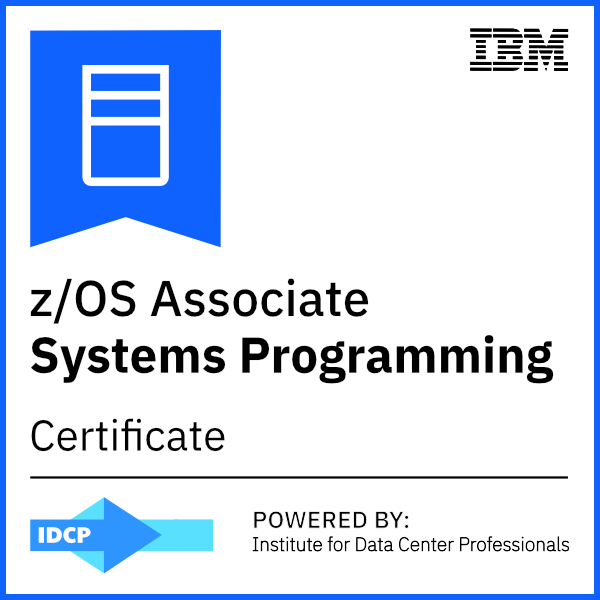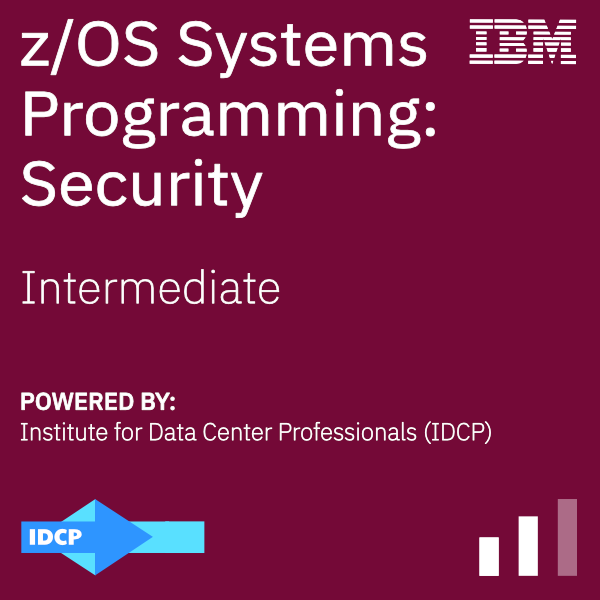Enterprise Course List
Enterprise Systems Courses
Enterprise Systems Certificates
| z/OS Systems Programming Track | z/OS Application Programming Track |
|---|---|
|
|
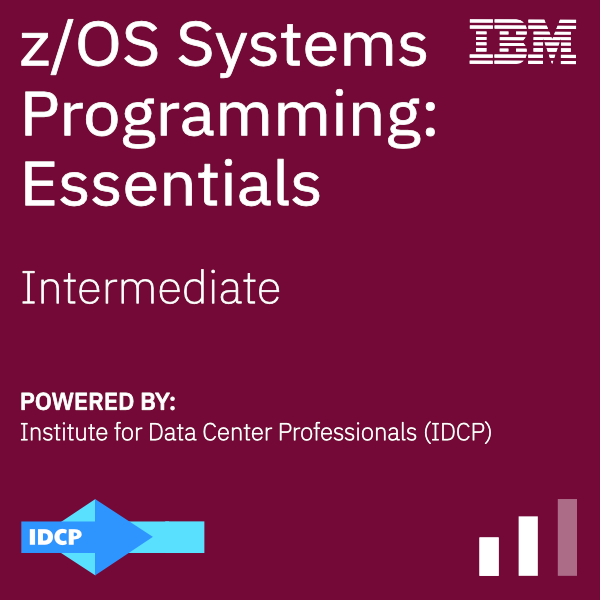
null
This course introduces operating system and data processing concepts in the context of large system (or Enterprise) computing using a combination of active learning exercises and passive learning presentations. The course context covers modern hardware, operating system, and middleware functions and features. This includes hardware concepts such as virtualization, logical partitioning, multi-processing and high performance I/O. The operating system concepts covered include workload management, (batch and transactional), dispatching , job control language, security, networking and other operating system functions. A brief introduction to z/OS UNIX is included as well. The course concludes with an overview of key middleware (transaction and database managers as well as messaging software) and their contribution to an overall hardware/software configuration needed to process enterprise workloads.
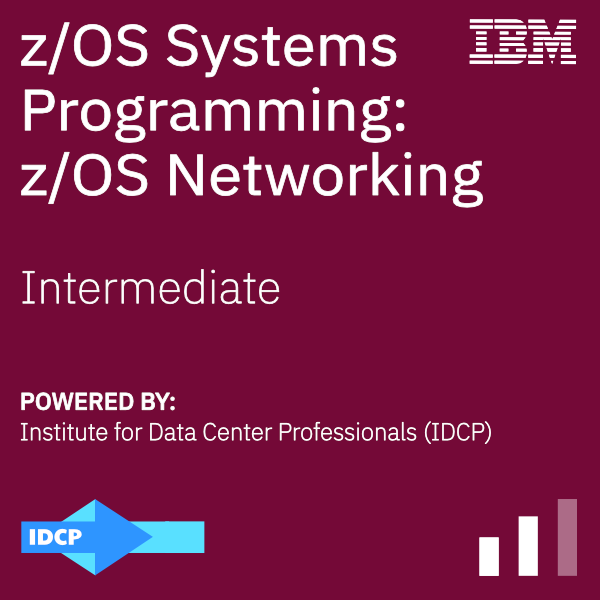
This course examines network theory and architectures (TCP/IP and SNA/APPN), the business problems to be solved and actual implementations, as well as security, administration, and operations. A PC with Windows is required to complete assignments where you learn and investigate general computer networking, and 2 hands-on labs where you will work on your own virtual z/OS system: examining, modifying, and repairing its network. The labs and lectures are an introduction to the tasks of a z Systems network administrator and will enable you to discuss data center issues with network managers as an informed and active participant.
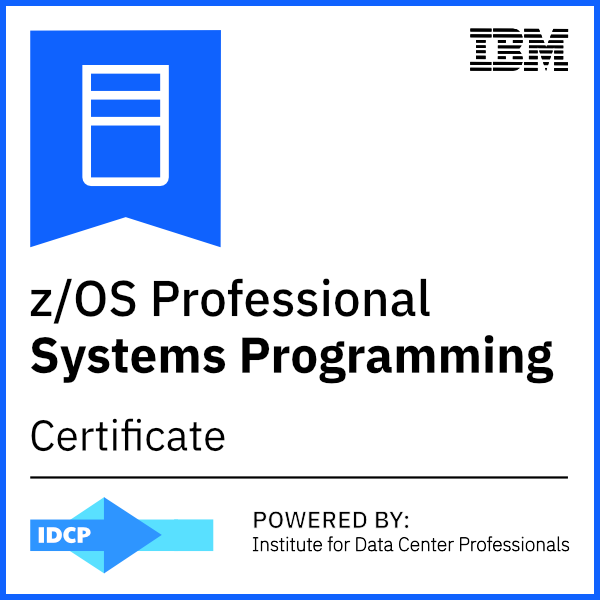
The z/OS Professional Certificate builds on the foundation built in the z/OS Associate Certificate. It covers topics and concepts of use to system programmers, operators, and application programmers alike. Key technologies such as business continuity and disaster recovery, business intelligence, assembler language (to reinforce hardware/architecture concepts) and RAS are covered in depth. Emerging technologies such as SOA and Web 2.0, which are expected to become more important and pervasive in the industry, are covered as well. Click on a module for more information on its content.
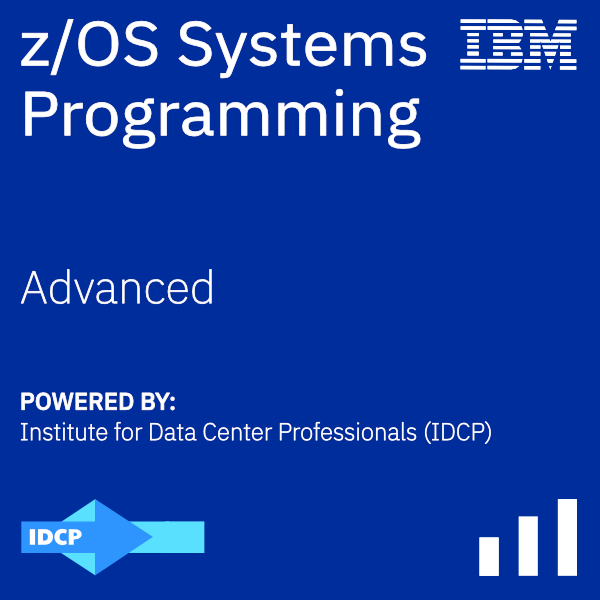
null
This course is designed to go into some detail on key technical areas of interest to personnel working with z Systems and z/OS. Several topics are extensions to basic materials covered in the Introduction to z/OS and Major Subsystems class IDCP 8 while others cover new material. Topics covered include business continuity and disaster recovery, business intelligence and data warehousing, a look inside the coupling facility, z/OS installation overview, z/OS performance basics, global resource serialization and z Systems virtualization (including memory management). Other topics such as system commands, system integrity and Server Time Protocol reinforce and expand on concepts discussed in earlier classes.

An image of a badge
This course provides an overview of Reliability, Availability, and Serviceability (RAS) principles and their importance to the z Systems hardware and z/OS operating system. The course introduces the major characteristics of the different aspects of RAS, distinguishing serviceability and problem determination. It also covers the broad area of Reliability and Availability functions and the value that they bring to the z Systems installation, as well as the management processes required by an installation to ensure that the highest levels of Availability can be attained. The reliability and availability topics covered include: an introduction to RAS concepts, general approaches for enabling a highly available environment, z Systems hardware and software availability features including parallel sysplex, and z/OS reliability including program recovery environments. z/OS Serviceability topics include: storage dumps, logging, and tracing, z./OS messages, operational problem determination (including Runtime Diagnostics, Predictive Failure Analysis and zAware) and an introduction to using IPCS to analyze two classes of storage dumps.
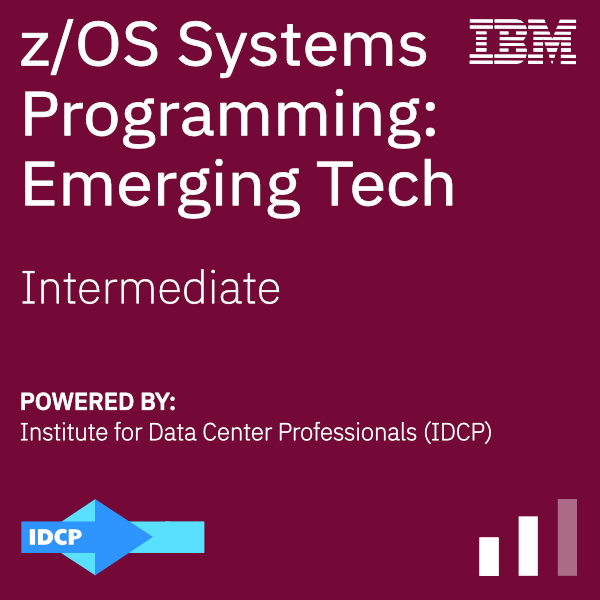
This course provides an overview of technologies that are expected to have significant impact on large scale computing environments over the next several years. In some cases the technologies discussed are relatively new and in other cases they have been around in one form or another for some time. In either case, this course looks at these technologies from the perspective of the z Systems hardware and software and the value and uniqueness of these technologies when used on z Systems. The topics covered include service- oriented architecture, Web 2.0, WebSphere process server, WebSphere message broker, XML on z Systems, JAVA on z Systems, Content Manager, Information Integration, z/OS simplification, Rational Developer for z Systems, z/OS Healthchecker, z/OS System REXX, GDPS Active/Active, and zLinux on z Systems.

The z/OS Expert Certificate builds on the skills and knowledge areas developed in the Associate and Professional Certificates. It covers a mix of technology of interest to all z/OS System Programmers. In particular, it exposes the student to z/OS installation, DB2 Fundamentals, and z/OS Performance Fundamentals. All enterprises that use z Systems need to install new releases of the operating system, major subsystems and preventative service. The z/OS Installation class provides extensive hands on labs to develop these skills. DB2 is the database manager of choice for many new z/OS applications and represents leading edge relational database technology. System programmers need to be familiar with it as it runs in most z/OS data centers. Finally, z/OS Performance Fundamentals provides a practical approach to developing skills that allow system programmers to understand their hardware and software environment and its performance characteristics.
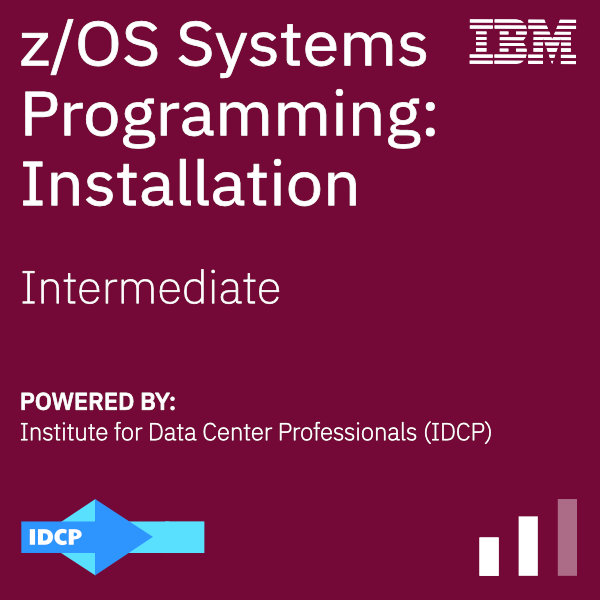
null
This course provides instruction on the use of SMP/E to perform z/OS installation and related activities. Practical exercises are used to build z/OS installation skills. The topics covered in this course include z/OS installation overview, SMP/E basic topics, SMP/E advanced topics, planning for z/OS, z/OS software offerings, ordering z/OS software, cloning, upgrading a z/OS product, z/OS migration, configuration and customization, z/OS deployment, ServerPac and best practices for maintenance.
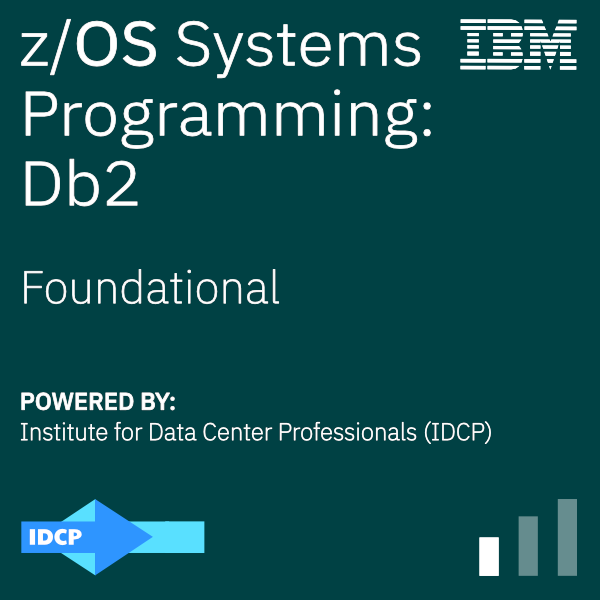
The DB2 Fundamentals class provides an introduction to the DB2 relational database system as implemented on z/OS. It introduces the major DB2 concepts, structures, functions and features and includes an introduction to DB2, DB2 concepts, system overview, system structures, database services, DB2 environment, attachment facilities, workload management, distributed data facility, SQL overview, DB2 interface, SQL journeys, database and application implementation, concurrency control, security, logging and recovery, startup and restart, commands, utilities and tools, system performance and fundamental query optimization.
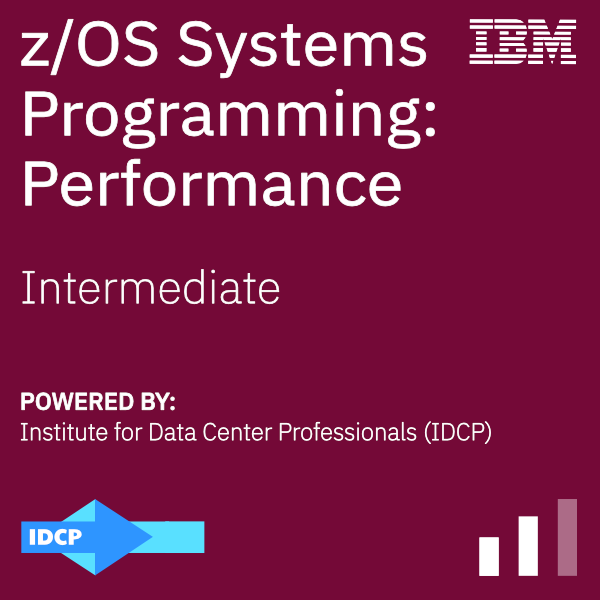
The z/OS Performance Fundamentals class provides a practical approach to understanding z/OS performance concepts and techniques. The class includes an introduction to the discipline of z/OS performance fundamentals, formula fundamentals, resources that need to be performance- managed, managed workloads that will be using the managed resources, the discipline of computer performance measurement and monitoring, common methodologies used to conduct a performance analysis and review, processor performance fundamentals, processor storage (memory) and paging subsystem performance fundamentals, DASD I/O subsystem performance fundamentals, workload manager performance fundamentals, sysplex and parallel sysplex performance fundamentals and workload performance fundamentals.
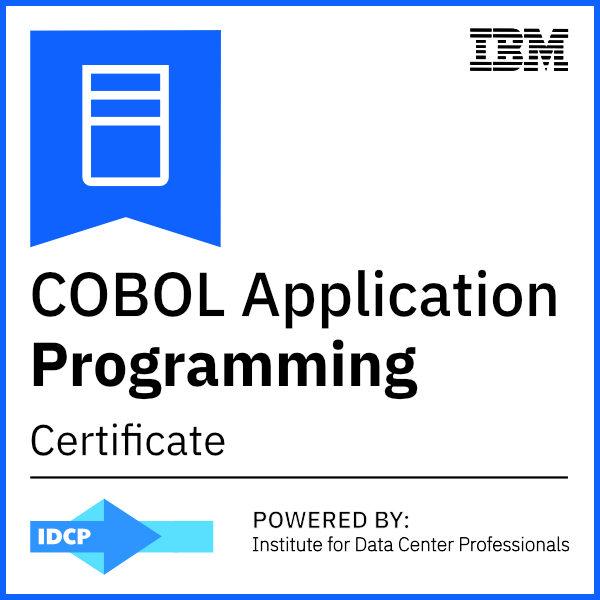
The COBOL Certificate provides an introduction to System zTM and the COBOL programming language. This program introduces the student to z/OS terminology and concepts, provides an introduction to COBOL programming and an understanding of data structures and file processing techniques. This certificate program is 100% on line. The three class certificate will train students to become z/OS COBOL application programmers.

null
This course introduces operating system and data processing concepts in the context of large system (or Enterprise) computing using a combination of active learning exercises and passive learning presentations. The course context covers modern hardware, operating system, and middleware functions and features. This includes hardware concepts such as virtualization, logical partitioning, multi-processing and high performance I/O. The operating system concepts covered include workload management, (batch and transactional), dispatching , job control language, security, networking and other operating system functions. A brief introduction to z/OS UNIX is included as well. The course concludes with an overview of key middleware (transaction and database managers as well as messaging software) and their contribution to an overall hardware/software configuration needed to process enterprise workloads.
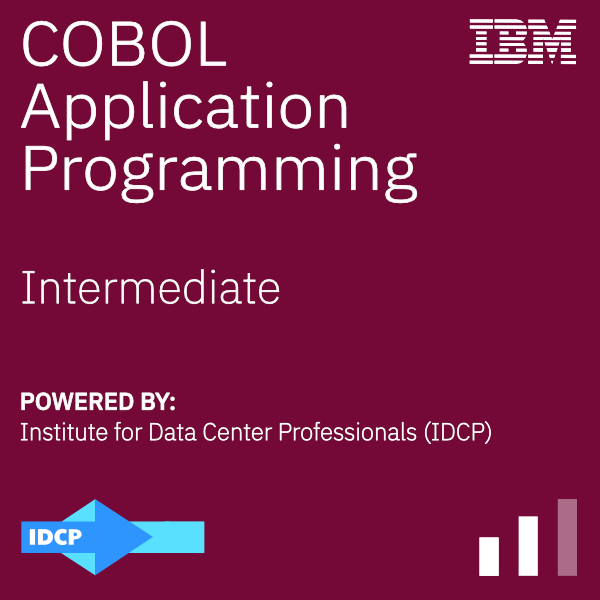
The basic COBOL application programming class provides the student an opportunity to exercise a number of programming techniques using the COBOL programming language. COBOL has been used to develop commercial applications and is still in wide use today in many large organizations. The class covers the use of structured programming techniques to design, code and test COBOL programs. This class will teach MOVEs, IF…ELSE, PERFORMs, I/O, math operations and array processing techniques. Weekly programming projects will be assigned to give students ample opportunity to learn the COBOL programming language.
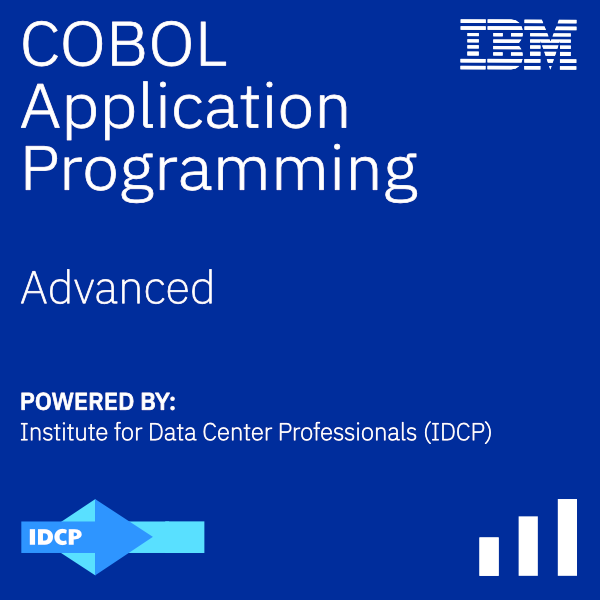
This course begins with a review of single dimensional array processing techniques before beginning multidimensional array processing techniques. File processing techniques including sorts, merges, and transaction processing will be covered. Structured Programming techniques and modularization including both internal and external subroutines will be taught and used in all programming projects. Database processing will be taught using both VSAM, including IDCAMS, and DB2. DB2 will be taught using both interactive processing with SQL Processor Using File input (SPUFI) and batch processing using embedded SQL. This course uses weekly programming projects to enable the student to practice what is being taught. These programming projects will be entered, compiled and executed on the Marist College z/OS mainframe computer using TSO.
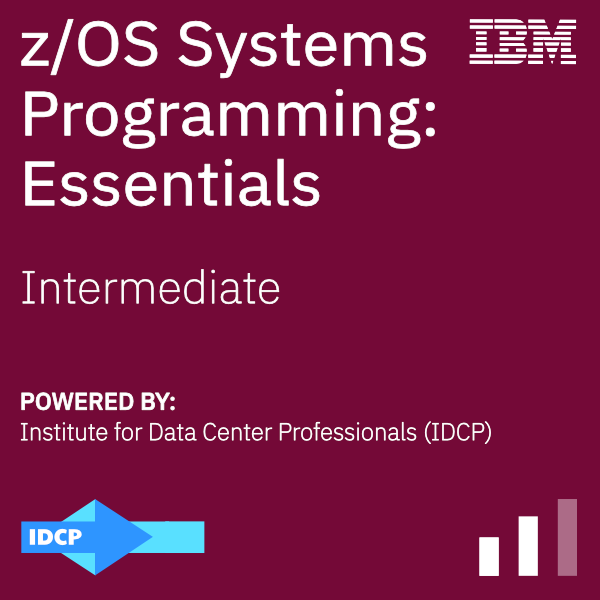
null
This course introduces operating system and data processing concepts in the context of large system (or Enterprise) com-puting using a combination of active learning exercises and passive learning presentations. The course content covers modern hardware, operating system, and middleware functions and features. This includes hardware concepts such as virtualization, logical partitioning, multi-processing, and high performance I/O. The operating system concepts covered in-clude workload management (batch and transactional), dispatching, job control language, security, networking and other operating system functions. A brief introduction to z/OS UNIX is included as well. The course concludes with an overview of key middleware (transaction and database managers as well as messaging software) and their contribution to an over-all hardware / software configuration needed to process enterprise workloads.

The DB2 Fundamentals class provides an introduction to the DB2 relational database system as implemented on z/OS. It introduces the major DB2 concepts, structures, functions and features and includes an introduction to DB2, DB2 concepts, system overview, system structures, database services, DB2 environment, attachment facilities, workload management, distributed data facility, SQL overview, DB2 interface, SQL journeys, database and application implementation, concurrency control, security, logging and recovery, startup and restart, commands, utilities and tools, system performance and fundamental query optimization.
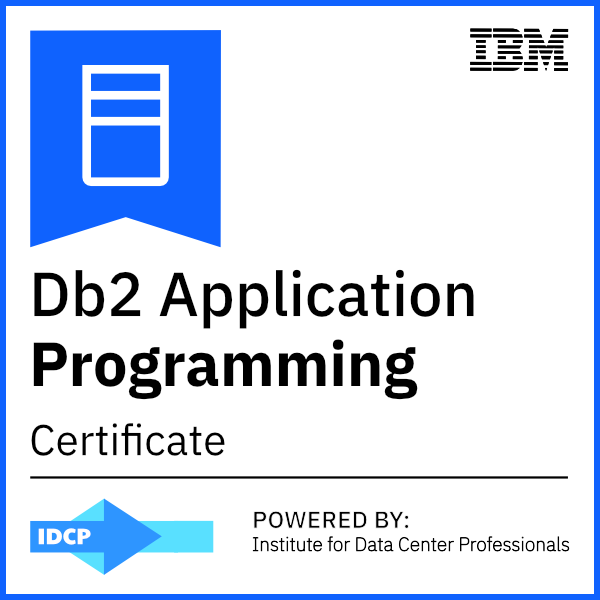
This course presents the fundamental concepts and programming techniques required to access DB2 for z/OS data through application programs. Students will learn to code programs with embedded SQL and to use a variety of attach-ment facilities to run those programs against DB2 for z/OS databases. The course includes many hands-on programming exercises which give students the opportunity to develop programming skills, learn good programming techniques and implement programming best practices while accessing DB2 data. Students taking this course should have a basic under-standing of relational databases (preferably DB2 for z/OS) and a basic knowledge of SQL.
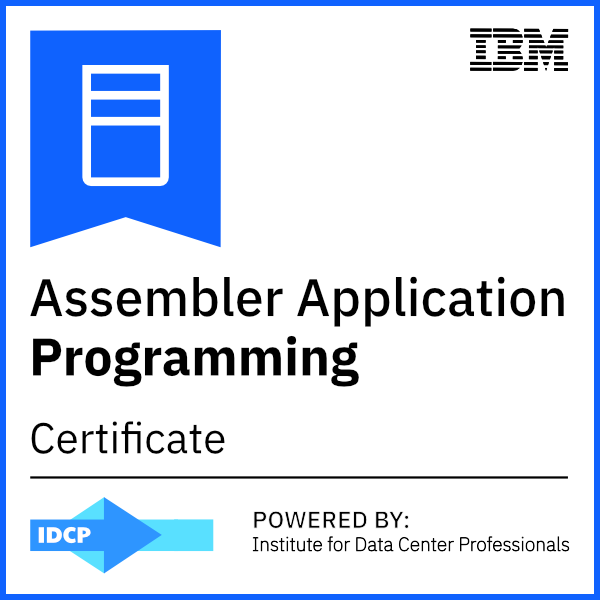
The z/OS Assembler Application Programming Certificate provides an Introduction to System z™ and the z/OS Assembler programming language. This program introduces the student to z/OS terminology and concepts and provides an introduction to Assembler language programming from an application programming perspective.

null
This course introduces operating system and data processing concepts in the context of large system (or Enterprise) com-puting using a combination of active learning exercises and passive learning presentations. The course content covers modern hardware, operating system, and middleware functions and features. This includes hardware concepts such as virtualization, logical partitioning, multi-processing, and high performance I/O. The operating system concepts covered in-clude workload management (batch and transactional), dispatching, job control language, security, networking and other operating system functions. A brief introduction to z/OS UNIX is included as well. The course concludes with an overview of key middleware (transaction and database managers as well as messaging software) and their contribution to an over-all hardware / software configuration needed to process enterprise workloads.
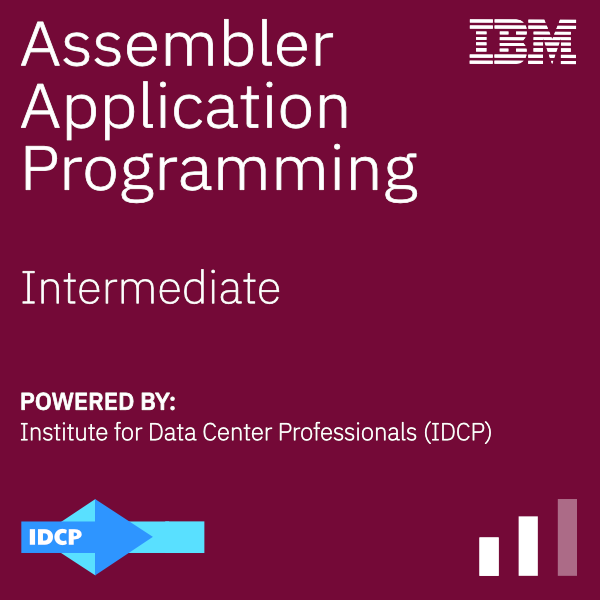
The class includes weekly video lectures and programming assignments that help students develop fundamental assem-bler skills. Individual attention is given to each student. Topics include number systems, machine components, instruction formats, addressing techniques, character manipulation, looping, conditional logic, packed decimal and binary arithmetic, multiple CSECTs, parameter passing, linkage conventions, debugging by hand, dump reading, and DSECTs.
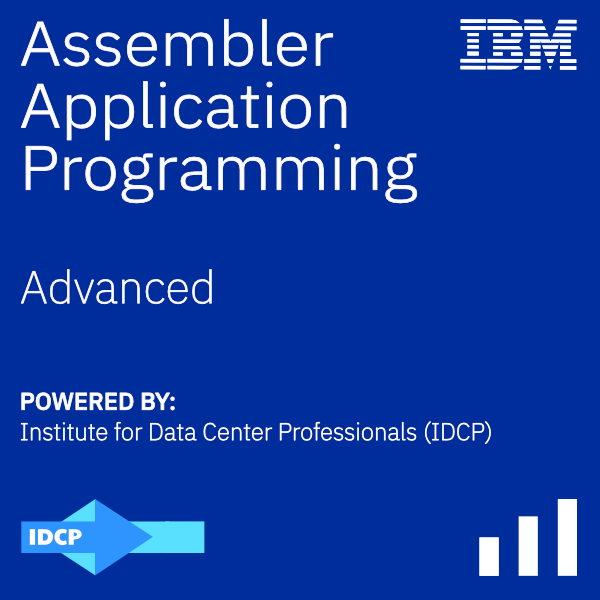
Weekly programming exercises will introduce a number of advanced z/OS assembler language programming techniques. In particular, this class will provide an opportunity to develop z/ OS assembler code that uses tables, lists and linked lists, z/OS units of work such as TCB’s and multitasking, z/OS assembler techniques and services to provide high levels of availability, z/OS assembler instructions and techniques for serialization, z-architecture instructions, z/OS multitasking using non-privileged system services, programs with multiple CSECTs, and re-entrant code. The exercises used in the class will allow the student to continue to develop good practices for designing, coding and testing well-structured and well-documented z/OS assembler code.
